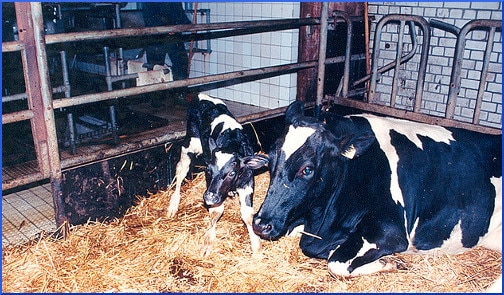Humans live on one-quarter of what they eat; on the other three-quarters lives their doctor.
This pithy observation is said to have been carved on an Egyptian pyramid nearly 6,000 years ago and is unmistakable proof that knowledge is not enough to save us. If humankind has known such a simple truth for all these millennia, why is the world now experiencing an unprecedented obesity epidemic?
Salt is one of the many problematic chemicals that humans can mess themselves up with. Investigating the connection between salt and obesity, journalist Judy Rupp even called it a big villain, using that exact word and providing circumstantial evidence:
According to sales figures of the American Salt Institute, salt consumption by Americans increased more than 50 percent from the mid-1980s to the late-1990s—a period when the prevalence of obesity was increasing rapidly. During that same period, intake of sugar-sweetened beverages increased by 135 percent, raising average daily calorie intake by 278 calories per person.
Astonishingly, salt manages to accomplish this villainy despite being completely devoid of calories. It inspires the desire for another no-calorie substance, water, which in many times and places throughout history was the only potable liquid available. Even today, a sensible person will prefer water, especially if weight management is an issue. But a thirsty child, given the opportunity, will choose a sugar-sweetened beverage (SSB). There is a suggestion that sodium and sugar are “part of a package,” and seem to work together with ill intent—another example of negative synergy.
In a 2012 study that concerned 4,283 kids, the ones who drank more than one SSB per day were 26% more likely to measure up as overweight or obese. A 2014 study of adolescents determined that they ate as much salt as their parents, and get this:
Those with a high sodium intake tended to be heavier and had more body fat than those who ate less salt, regardless of how much food they ate and how many sugary beverages they consumed.
Say that again? Salt junkies are heavier regardless of food and SSB intake? Indeed, and hypertension is almost guaranteed. Compared to low-level consumers, the salt fiends also showed more signs of systemic inflammation, considered to be the forerunner of diabetes, cancer, and cardiovascular disease. Here is an interesting clump of information:
One study found that 43 percent of sodium in a child’s diet came from the following categories: pizza; yeast bread and rolls, including doughnuts; cold cuts and cured meats; salty snacks such as chips and pretzels; sandwiches such as cheeseburgers; cheese; chicken patties, nuggets and tenders; pasta dishes; Mexican dishes such as burritos and tacos; and canned soups.
The ingestion of nourishing substances begins early, and plenty of research has shown that breast-fed babies fare better. The Child Nutrition Research Centre attached to the University of Queensland wanted to know more about the reason. In explaining it for the American Journal of Clinical Nutrition, Dr. Rebecca Hill began, as so many experts do, by noting that obesity is multi-factorial. But exactly why do breast-fed babies develop less obesity later?
It might be all about the protein. When a newborn begins nursing, the mother’s milk contains a goodly amount of protein. According to nature’s design, the level starts to fall, and by the time the baby is three months old, the mother’s milk contains only half as much protein as at the beginning.
Many brands of baby formula, however, boast a higher protein content than breast milk. This Australian study of 1,500 babies points a finger at “excessive protein intake in the first two years of an infant’s life” for apparently leading to future overweight and obesity.
Speaking of which, Matthew Kirby wrote a piece titled “Cow’s Milk is the Reason You’re Fat and Hate Your Parents, Study Finds.” This was based on data gleaned from 1,112 infant subjects in the Avon Longitudinal Study of Parents and Children. Kirby says:
According to a paper published in the American Journal Of Clinical Nutrition, children who drank just over a pint of [cow] milk each day at eight months gained weight faster and continued to become heavier than their breast-fed counterparts.
Apparently, cow milk is an even bigger obesity villain than formula. Mother’s milk is still the best of all.
Your responses and feedback are welcome!
Source: “Salt: Making kids fatter? ,” EnidNews.com, 06/17/15
Source: “Childhood obesity: Higher protein intake in infancy, possibly through formula, seen as factor,” ABC.net.au, 04/16/15
Source: “Cow’s Milk is the Reason You’re Fat and Hate Your Parents, Study Finds,” konbini.com, November 2015
Image by Roger W


 FAQs and Media Requests:
FAQs and Media Requests: 











